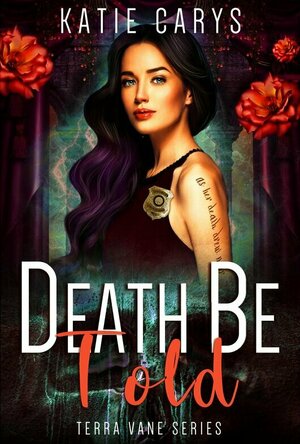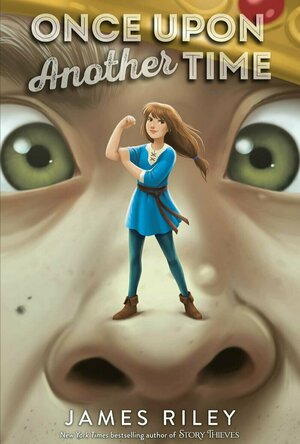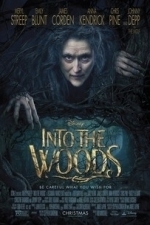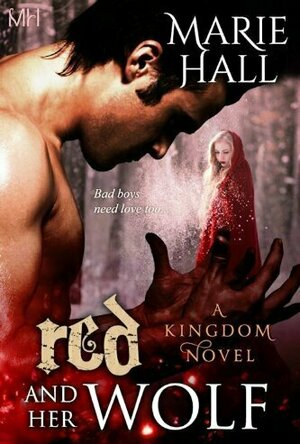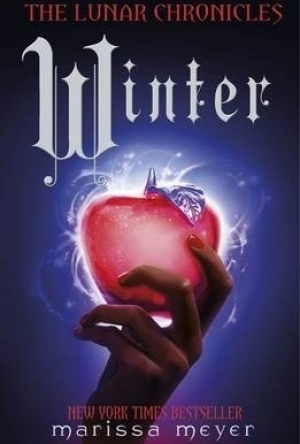Search
Lyndsey Gollogly (2893 KP) rated Death Be Told (Terra Vane #5) in Books
Jun 29, 2021
Contains spoilers, click to show
97 of 250
Kindle
Death Be Told ( Terra Vane book 5)
By Katie Carys
Once read a review will be written via Smashbomb and link posted in comments
My name is Terra, and I’m a Psychic. I have visions, but my gift is getting more dangerous and I’m starting to worry. Though the team are continuing the pursuit of the escapees, my own hunt has taken a different course now a psychopathic serial killer has taken an interest in me.
Obsessed with fairytales, he’s kidnapped a young woman, and I've seen what he intends to do. I can’t let it happen – I won’t let her go through that pain. But I need to address my own pain too, and that means confronting the hard truth of who I want to be with, face-to-face.
Right now, I feel like both the predator and the prey but one thing’s for certain, I won’t be letting the killer have his happy ending.
These books just get better and better! I think the characters and story are just so good.Karen is just all man! He’s finally getting his girl! Fingers crossed. I adore Terra too. This story was so good and creepy with one of their demon prisoners possessing the soul of a serial killer it was just so interesting watching her work with Grady and hopefully he will say yes to the job! He will definitely be an asset to the team. Plus for some reason I don’t think we have seen the last of Cole and his jealousy.
Kindle
Death Be Told ( Terra Vane book 5)
By Katie Carys
Once read a review will be written via Smashbomb and link posted in comments
My name is Terra, and I’m a Psychic. I have visions, but my gift is getting more dangerous and I’m starting to worry. Though the team are continuing the pursuit of the escapees, my own hunt has taken a different course now a psychopathic serial killer has taken an interest in me.
Obsessed with fairytales, he’s kidnapped a young woman, and I've seen what he intends to do. I can’t let it happen – I won’t let her go through that pain. But I need to address my own pain too, and that means confronting the hard truth of who I want to be with, face-to-face.
Right now, I feel like both the predator and the prey but one thing’s for certain, I won’t be letting the killer have his happy ending.
These books just get better and better! I think the characters and story are just so good.Karen is just all man! He’s finally getting his girl! Fingers crossed. I adore Terra too. This story was so good and creepy with one of their demon prisoners possessing the soul of a serial killer it was just so interesting watching her work with Grady and hopefully he will say yes to the job! He will definitely be an asset to the team. Plus for some reason I don’t think we have seen the last of Cole and his jealousy.
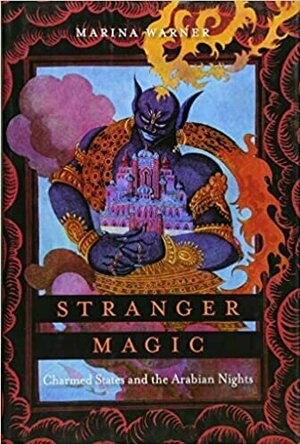
Stranger Magic
Book
Our foremost theorist of myth, fairytales, and folktales explores the magical realm of the...

Drive Ahead!
Games
App
Drive Ahead! is a gladiator car fight. Get points by knocking friends in the head with a car! Battle...
Mark @ Carstairs Considers (2494 KP) rated Once Upon Another Time in Books
Apr 7, 2022
A Second Magical Remix of Fairytales
Lena is small for a giant, but she is still ready to participate in her first Ritual of the Spark ceremony. However, when she does go, things don’t go the way she thought they would, and she finds herself running to visit her friends in the Cursed City. Meanwhile, Jin, a genie in training, finds himself on a mission for his current master, the Golden King. The king is trying to capture the Last Knight, the leaders of the rebels, and his current hiding place is supposed to be the Cursed City. What will happen when both Lena and Jin get there?
I’ve been reading author James Riley since his first book came out, and when I found out he was returning to that world for a new trilogy, I was thrilled. This book stands on its own, although there are a few references to things from the earlier books. We alternate chapters from Lena and Jin’s points-of-view, so we get to know them both well. I liked them and several of the other characters here. The further into the book I read, the more I was hooked on the story as the characters faced more obstacles. With that ending, I’m glad the next is coming out this fall. The target middle grade audience will love this series, and anyone looking for a fun take on familiar characters will be glad they picked it up no matter what their age.
I’ve been reading author James Riley since his first book came out, and when I found out he was returning to that world for a new trilogy, I was thrilled. This book stands on its own, although there are a few references to things from the earlier books. We alternate chapters from Lena and Jin’s points-of-view, so we get to know them both well. I liked them and several of the other characters here. The further into the book I read, the more I was hooked on the story as the characters faced more obstacles. With that ending, I’m glad the next is coming out this fall. The target middle grade audience will love this series, and anyone looking for a fun take on familiar characters will be glad they picked it up no matter what their age.
Movie Metropolis (309 KP) rated Into the Woods (2014) in Movies
Jun 11, 2019
A charming adaptation
Wolves, witches and giants all appear in the film adaptation of Stephen Sondheim’s popular musical which takes all the best bits of our favourite fairytales and mashes them together in one engaging, song-filled rollercoaster.
However, musical movie adaptations are notoriously difficult to get right, from casting restraints to the inclusion of all the songs, transferring them to the silver screen is not something to be entered into lightly. So does director Rob Marhsall’s effort elevate itself above its peers?
Into the Woods has numerous plot threads that all end up coming together in one way or another, but the main storyline follows a baker (James Corden) and his wife, played gloriously by Emily Blunt, as they come to realise they cannot have a child.
Alas, a witch – who just so happens to live next door – has a way to provide them with what they want as long as they get a few items for her in the meantime.
An all-star cast including the likes of Chris Pine, Anna Kendrick, Christine Baranski, Lucy Punch, Johnny Depp and of course Meryl Streep all give their all in a film that is brimming with tantalising cinematography and stunning songs.
meryl-streep-into-the-woodsGenerally speaking, the female cast fares better in the singing portions of the film, although Chris Pine and Billy Magnussen had the audience in intentional fits of laughter in one particular sequence as two handsome Princes.
Unfortunately, Into the Wood’s greatest asset, its cast, is also its biggest undoing. Having so many story threads means that there isn’t any emotional attachment to the characters – despite the film’s numerous attempts to tug at the heartstrings.
Despite a deeply heartfelt performance of ‘Stay with Me’ from Meryl Streep, the film just steadily rolls itself from admittedly thrilling set piece to set piece without getting bogged down in nitty gritty character development.
Thankfully, the glorious cinematography that featured in the trailer continues throughout. An enclosed feeling makes you feel like you’re actually watching a stage show rather than a film, albeit one with a much higher budget, and this is one of its most captivating features.
Director Rob Marshall has managed to keep the pantomime feel despite the fact the audience is watching in a cinema – the locations are never overdone and everything feels nicely claustrophobic, adding to the eerie atmosphere.
However, the final act is unnecessarily long and its foray into deeper territory means the magic and sparkle is well and truly lost. This is a real shame as there are numerous moments where the film could end on a high, rather than delving into a murky and at times, incomprehensible final third.
Overall, Into the Woods is a charming adaptation of the popular musical and despite its slightly overlong running time and a disappointing final act, it manages to stay on course for a perfectly adequate, if underwhelming finale.
The entire cast have a ball with their characters with Meryl Streep and Emily Blunt being particular highlights throughout.
Parents beware however, its PG certification may be slightly too lenient for smaller children, who will no doubt be intrigued by the premise of combining our most-loved fairytales.
https://moviemetropolis.net/2015/01/17/a-charming-adaptation-into-the-woods-review/
However, musical movie adaptations are notoriously difficult to get right, from casting restraints to the inclusion of all the songs, transferring them to the silver screen is not something to be entered into lightly. So does director Rob Marhsall’s effort elevate itself above its peers?
Into the Woods has numerous plot threads that all end up coming together in one way or another, but the main storyline follows a baker (James Corden) and his wife, played gloriously by Emily Blunt, as they come to realise they cannot have a child.
Alas, a witch – who just so happens to live next door – has a way to provide them with what they want as long as they get a few items for her in the meantime.
An all-star cast including the likes of Chris Pine, Anna Kendrick, Christine Baranski, Lucy Punch, Johnny Depp and of course Meryl Streep all give their all in a film that is brimming with tantalising cinematography and stunning songs.
meryl-streep-into-the-woodsGenerally speaking, the female cast fares better in the singing portions of the film, although Chris Pine and Billy Magnussen had the audience in intentional fits of laughter in one particular sequence as two handsome Princes.
Unfortunately, Into the Wood’s greatest asset, its cast, is also its biggest undoing. Having so many story threads means that there isn’t any emotional attachment to the characters – despite the film’s numerous attempts to tug at the heartstrings.
Despite a deeply heartfelt performance of ‘Stay with Me’ from Meryl Streep, the film just steadily rolls itself from admittedly thrilling set piece to set piece without getting bogged down in nitty gritty character development.
Thankfully, the glorious cinematography that featured in the trailer continues throughout. An enclosed feeling makes you feel like you’re actually watching a stage show rather than a film, albeit one with a much higher budget, and this is one of its most captivating features.
Director Rob Marshall has managed to keep the pantomime feel despite the fact the audience is watching in a cinema – the locations are never overdone and everything feels nicely claustrophobic, adding to the eerie atmosphere.
However, the final act is unnecessarily long and its foray into deeper territory means the magic and sparkle is well and truly lost. This is a real shame as there are numerous moments where the film could end on a high, rather than delving into a murky and at times, incomprehensible final third.
Overall, Into the Woods is a charming adaptation of the popular musical and despite its slightly overlong running time and a disappointing final act, it manages to stay on course for a perfectly adequate, if underwhelming finale.
The entire cast have a ball with their characters with Meryl Streep and Emily Blunt being particular highlights throughout.
Parents beware however, its PG certification may be slightly too lenient for smaller children, who will no doubt be intrigued by the premise of combining our most-loved fairytales.
https://moviemetropolis.net/2015/01/17/a-charming-adaptation-into-the-woods-review/
Lyndsey Gollogly (2893 KP) rated Red and Her Wolf (Kingdom Seires #3) in Books
Nov 30, 2020
199 of 200
Kindle
Red and her Wolf ( Kingdom book 3)
By Marie Hall
Long ago there lived a beautiful child. Her name was Violet. Fair of skin, with blonde hair and large blue eyes. Born of wild magic, she was a woman with a child's heart. Innocent and lovely, but not at all what she seemed--you see Violet went by another name: The Heartsong.
She was the child of fairy magic, the physical manifestation of all fae kinds unbridled power. Cosseted and pampered, she grew up in isolation, never knowing who she really was, or why there were those who'd seek to harm her.
Ewan of the Blackfoot Clan is a wolf with a problem. He's been sent to kill the Heartsong, but the moment he lays eyes on the blonde beauty he knows he'll defy the evil fae he works for to claim Violet as his own.
This is the tale of Little Red Riding Hood and the Big Bad Wolf, as it really happened...
This is not an erotica, just a good old fashioned romance.
Think this is my favourite so far. A twisted retelling of Little Red Riding Hood and it was so good! I love my fairytales and always sort of cringe when they are redone I like how Marie Hall tells her version of these tales. I enjoyed the first two and this one so far was definitely my favourite giving Red a whole new look and purpose! I’d love a big bad wolf of they came like Ewan. Was also nice to pop in on Alice and the Hatter!!
Kindle
Red and her Wolf ( Kingdom book 3)
By Marie Hall
Long ago there lived a beautiful child. Her name was Violet. Fair of skin, with blonde hair and large blue eyes. Born of wild magic, she was a woman with a child's heart. Innocent and lovely, but not at all what she seemed--you see Violet went by another name: The Heartsong.
She was the child of fairy magic, the physical manifestation of all fae kinds unbridled power. Cosseted and pampered, she grew up in isolation, never knowing who she really was, or why there were those who'd seek to harm her.
Ewan of the Blackfoot Clan is a wolf with a problem. He's been sent to kill the Heartsong, but the moment he lays eyes on the blonde beauty he knows he'll defy the evil fae he works for to claim Violet as his own.
This is the tale of Little Red Riding Hood and the Big Bad Wolf, as it really happened...
This is not an erotica, just a good old fashioned romance.
Think this is my favourite so far. A twisted retelling of Little Red Riding Hood and it was so good! I love my fairytales and always sort of cringe when they are redone I like how Marie Hall tells her version of these tales. I enjoyed the first two and this one so far was definitely my favourite giving Red a whole new look and purpose! I’d love a big bad wolf of they came like Ewan. Was also nice to pop in on Alice and the Hatter!!
Lottie disney bookworm (1056 KP) rated Trying to Live Happily Ever After in Books
Oct 8, 2019
I received an advance review copy of this book for free, and I am leaving this review voluntarily. Thank you to Booksirens and Clive Lilwall for this opportunity.
I was very intrigued by the concept of Trying to Live Happily Ever After: bringing fairytales into the modern age is right up my street and, on the whole, Clive Lilwall did not disappoint.
With 17 short stories in total I must admit I did not enjoy every tale.
Cinderella, in my opinion, was just as vapid as her stepsisters and it felt like her owning an old model of a mobile phone justified her to get "the prince". Granted, this may have been Lilwall's aim to show how we associate technology with social standing. However, I would have appreciated a stronger role model as opposed to the slightly kinder but still materialistic Cindy we received.
Unfortunately some of the fables were also lost on me but that may be because I am not familiar with the originals.
Nevertheless, some of Lilwall's tales will possibly stay with me forever. Red's granny getting saucy under a wolf skin; Hansel and Gretal getting fat and baked in a whole new way and, of course, the blunt, shameless, no-holds-barred adaptation of The Emperor's New Clothes, starring a certain "president".
The writing is overly simplistic at times but this only highlights the roots of these tales as stories and fables.
The writing does not need to be complex when human actions and consequences are under the spotlight in such a humorous, satirical and thought provoking manner.
These are not the fairy tales you remember, they're not even revolting-rhymes-sort-of-for-kids. Not in the slightest. You have been warned.
I was very intrigued by the concept of Trying to Live Happily Ever After: bringing fairytales into the modern age is right up my street and, on the whole, Clive Lilwall did not disappoint.
With 17 short stories in total I must admit I did not enjoy every tale.
Cinderella, in my opinion, was just as vapid as her stepsisters and it felt like her owning an old model of a mobile phone justified her to get "the prince". Granted, this may have been Lilwall's aim to show how we associate technology with social standing. However, I would have appreciated a stronger role model as opposed to the slightly kinder but still materialistic Cindy we received.
Unfortunately some of the fables were also lost on me but that may be because I am not familiar with the originals.
Nevertheless, some of Lilwall's tales will possibly stay with me forever. Red's granny getting saucy under a wolf skin; Hansel and Gretal getting fat and baked in a whole new way and, of course, the blunt, shameless, no-holds-barred adaptation of The Emperor's New Clothes, starring a certain "president".
The writing is overly simplistic at times but this only highlights the roots of these tales as stories and fables.
The writing does not need to be complex when human actions and consequences are under the spotlight in such a humorous, satirical and thought provoking manner.
These are not the fairy tales you remember, they're not even revolting-rhymes-sort-of-for-kids. Not in the slightest. You have been warned.
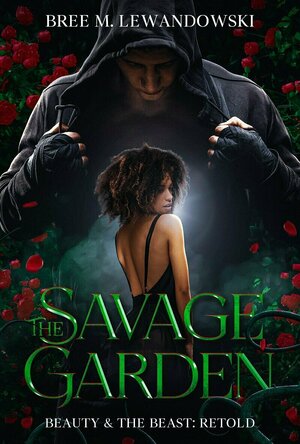
The Savage Garden
Book
The lights here are all dark and vixens pull men into the shadows. Hers was a tale as old as...
romance
Update: Winter is the final book in the Lunar Chronicles series (although the story does continue in graphic novel form.) It is definitely one of my favourite conclusions, as the story wraps up well and is satisfying. The reader is not left with myriad plot holes and questions. As this is the fourth book in the series, you need to read the first three before delving into this one otherwise you will be confused and majorly spoiled.
The world building continued even in this book and most importantly we were shown Luna. Before that, they story took place predominantly on Earth in either the European Union, the African Republic or the Eastern Commonwealth. Once transported to Luna, readers were better able to get a sense of the disparity between the Lunar Aristocracy and the rest of Luna's citizens. The palace and surrounding area of Artemisia are ornately decorated whereas the outer sectors live in squalor. The stunning contrast is reminiscent of our own world and gives us a glimpse into the change that needs to happen.
Although this story was supposed to delve deeper into Winter and Jacin's relationship (which it did) I felt that it was overshadowed by the overarching plot. It was really nice to see the two interact and Jacin's character be developed more. He can seem cold and removed most of the time, but his demeanor completely changes when he is around Winter. He cares about her so much and will do anything to ensure her well-being. My one criticism about the book is that these two didn't receive the same relationship development and story time as the other three pairings.
You fall in love with these characters and follow them on their journey from mechanic to revolutionary, criminal to captain, or even unsure to (mildly) confident. They feel real and make their way into your heart. Iko was her usual precious self and I was so happy to see her woven more into the story. You don't want to see their stories end and thankfully they don't because the author is continuing the series in graphic novel form.
I would highly recommend this series to young adult/teen readers even if science fiction or fairytale retellings aren't usually your thing. They're so fantastically written that I think they appeal to broad range of readers and genres.
Original Review: I read the entire series over the course of four days, novellas included. That is how wonderful it is. As a fan of fairytale retellings, like Beastly by Alex Flinn, I had high hopes for this series and it did not disappoint. It gave the reader wonderful little homages to the classic fairytales while weaving the story through a world and characters all its own.
The world building in this novel was wonderfully done. As a reader, I could imagine the Lunar Palace as a place of opulence while those in the lower districts lived in poverty. There were a number of important characters and none of them were overlooked. You were able to learn about their personalities, histories, or relationships in a way that gave each depth. Each character had a unique personality and strength in the group. from fiery Scarlet to shy Cress and from flirty Thorn to tortured Wolf.
Sometimes conclusions to series just don't stand up to their legacy, but this was not one of those books. The author gave the reader everything they desired, climactic action scenes, wrapping up story threads while opening the door to future adventures, and leaving the reader satisfied. There's nothing worse than reading an amazing series that you become wholly invested in and then being utterly disappointed by the conclusion.
Recommended for anyone who liked YA, romance, fairytales, sci-fi, or really good books/series that you won't regret reading.
The world building continued even in this book and most importantly we were shown Luna. Before that, they story took place predominantly on Earth in either the European Union, the African Republic or the Eastern Commonwealth. Once transported to Luna, readers were better able to get a sense of the disparity between the Lunar Aristocracy and the rest of Luna's citizens. The palace and surrounding area of Artemisia are ornately decorated whereas the outer sectors live in squalor. The stunning contrast is reminiscent of our own world and gives us a glimpse into the change that needs to happen.
Although this story was supposed to delve deeper into Winter and Jacin's relationship (which it did) I felt that it was overshadowed by the overarching plot. It was really nice to see the two interact and Jacin's character be developed more. He can seem cold and removed most of the time, but his demeanor completely changes when he is around Winter. He cares about her so much and will do anything to ensure her well-being. My one criticism about the book is that these two didn't receive the same relationship development and story time as the other three pairings.
You fall in love with these characters and follow them on their journey from mechanic to revolutionary, criminal to captain, or even unsure to (mildly) confident. They feel real and make their way into your heart. Iko was her usual precious self and I was so happy to see her woven more into the story. You don't want to see their stories end and thankfully they don't because the author is continuing the series in graphic novel form.
I would highly recommend this series to young adult/teen readers even if science fiction or fairytale retellings aren't usually your thing. They're so fantastically written that I think they appeal to broad range of readers and genres.
Original Review: I read the entire series over the course of four days, novellas included. That is how wonderful it is. As a fan of fairytale retellings, like Beastly by Alex Flinn, I had high hopes for this series and it did not disappoint. It gave the reader wonderful little homages to the classic fairytales while weaving the story through a world and characters all its own.
The world building in this novel was wonderfully done. As a reader, I could imagine the Lunar Palace as a place of opulence while those in the lower districts lived in poverty. There were a number of important characters and none of them were overlooked. You were able to learn about their personalities, histories, or relationships in a way that gave each depth. Each character had a unique personality and strength in the group. from fiery Scarlet to shy Cress and from flirty Thorn to tortured Wolf.
Sometimes conclusions to series just don't stand up to their legacy, but this was not one of those books. The author gave the reader everything they desired, climactic action scenes, wrapping up story threads while opening the door to future adventures, and leaving the reader satisfied. There's nothing worse than reading an amazing series that you become wholly invested in and then being utterly disappointed by the conclusion.
Recommended for anyone who liked YA, romance, fairytales, sci-fi, or really good books/series that you won't regret reading.
